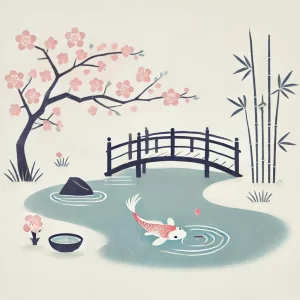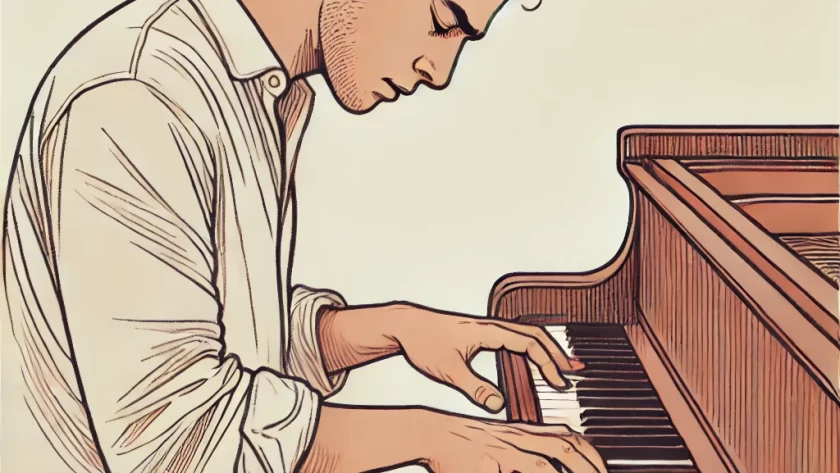いとしのエリー [Itoshi no Erī]
サザンオールスターズ [Sazan Ōrusutāzu]
Words & Music : 桑田佳祐 [KUWATA Keisuke]
Southern All Stars‘ third single, “Itoshi no Ellie” was released in 1979. It was also used as the theme song for the TV drama “Fuzoroi no Ringotachi YT.”
Southern All Stars are five-member rock band that have been active since their major debut in 1978 and continues to be active as of 2024, the band that everyone in Japan knows.
Initially, they released songs with a comical and powerful impression, but with this third single, they released a sentimental love song that captured the hearts of many fans.
This song has been covered by many famous artists, and I was particularly surprised that Ray Charles covered it in 1989 as “Ellie My Love.”
“いとしの / itoshi no” can be translated to “beloved” or “dear.”
泣かした事もある
nakashita koto mo aru
- 泣く(なく) [naku] : cry
(translation) “I have made her cry before.”
冷たくしてもなお
tsumetaku shite mo nao
よりそう気持ちがあればいいのさ
yorisou kimochi ga areba ī no sa
- 冷たい(つめたい)[tsumetai] : cold
- よりそう(よりそう) [yorisou] : snuggle
- 気持ち(きもち) [kimochi] : feeling
(translation) “Even if I’m cold to her,
As long as we have the feeling of snuggling together, it’s fine.”
Well, that’s understandable if it was the person who was made to cry and treated coldly who says this… but it seems selfish to me. Well, whatever.

俺にしてみりゃ これで最後のlady
ore ni shitemirya kore de saigo no lady
エリー my love so sweet
Erī my love so sweet
- 俺(おれ) [ore] : I
- 最後(さいご) [saigo] : last
(translation) “To me, this is the last lady.
Erī, my love so sweet.”
“Ore” is a first-person pronoun used by men. In “Words In Japanese Song,” we’ve talked about the many first-person pronouns in Japanese. Let’s summarize them again.
私(わたし)[watashi]
This is the most formal way of saying it.
In spoken language and lyrics, it is used by women. And,
僕(ぼく)[boku]
俺(おれ)[ore]
These are the first-person pronouns used by men in spoken language and lyrics. “Boku” gives a gentle impression, while “Ore” gives a strong impression. “Ore” also has a rough connotation, so it is not recommended for beginners in Japanese. However, in actual spoken language, “Ore” is more commonly used. Probably because men want to appear strong.
In lyrics, “Boku” creates a more dressed-up poem-like feel, while “Ore” creates a simple sentence that looks like a conversation as it is. In sweet love songs, “Boku” is often used, but here it is not a word directed at “You,” so it can be considered a monologue by “Ore.”
”Erī” is not a common Japanese name. The author, Keisuke Kuwata, likes Western music and has a slightly Western style of singing. Therefore, the title “Itoshino Erī (Itoshi no Ellie)” sounds very much like a Western song to me.
二人がもしもさめて 目を見りゃつれなくて
futari ga moshimo samete me o mirya tsurenakute
人に言えず思い出だけがつのれば
hito ni iezu omoide dake ga tsunoreba
- 二人(ふたり) [futari] : two people
- もしも [moshimo] : if
- さめる(さめる) [sameru] : wake up
- 目(め) [me] : eyes
- 見る(みる) [miru] : see
- つれない [tsurenai] : indifferent
- 人(ひと)[hito] : person, other people
- 言う(いう) [iu] : say
- 思い出(おもいで) [omoide] : memory
(translation) “If the two of us wake up from love
and when we look into each other’s eyes, we are cold to each other,
and if only memories build up without being able to tell anyone”
言葉につまるようじゃ 恋は終わりね
kotoba ni tsumaru yō ja koi wa owari ne
エリー my love so sweet
Erī my love so sweet
- 言葉(ことば) [kotoba] : words
- つまる(つまる) [tsumaru] : stuck
- 恋(こい) [koi] : love
- 終わり(おわり) [owari] : end
(translation) “If words get stuck, then love is over.
Erī my love so sweet.”
“言葉につまる / kotoba ni tsumaru” means “words get stuck,” a common idiom.
笑ってもっと baby むじゃきに on my mind
waratte motto baby mujaki ni on my mind
映ってもっと baby すてきに in your sight
utsutte motto baby suteki ni in your sight
- 笑う(わらう) [warau] : laugh
- もっと [motto] : more
- 無邪気(むじゃき) [mujaki] : innocent
- 映る(うつる) [utsuru] : reflect
- 素敵(すてき) [suteki] : wonderful
(translation) “Laugh more innocently, baby, on my mind
Reflect more wonderfully, baby, in your sight.”
Trying to translate too accurately would be crude. The combination of rhythmic Japanese word choice and a Western-style atmosphere is superb. I hope you enjoy the fun of the sokuon in “笑ってもっと / waratte motto.”
Please refer to this video as well.
誘い涙の日が落ちる
sasoi namida no hi ga ochiru
エリー my love so sweet
Erī my love so sweet
エリー my love so sweet
Erī my love so sweet
- 涙(なみだ) [namida] : tear
- 日(ひ) [hi] : day, sun
- 落ちる(おちる) [ochiru] : fall
(translation) “The sun is setting, inviting tears.
Erī, my love so sweet
Erī, my love so sweet.”
When you see the scene of the sun setting, you become sentimental, and tears are invited. Grammatically, it’s a bit difficult, so beginners don’t need to worry about it.

あなたがもしもどこかの遠くへ行きうせても
anata ga moshimo dokoka no tōku e ikiusetemo
今までしてくれたことを 忘れずにいたいよ
ima made shite kureta koto o wasurezu ni itai yo
- あなた [anata] : you
- どこか [dokoka] : somewhere
- 遠く(とおく) [tōku] : far away
- 行く(いく) [iku] : go
- うせる [useru] : disappear
- 今まで(いままで) [ima made] : until now
- する [suru] : do
- 忘れる(わすれる) [wasureru] : forget
(translation) “Even if you disappear somewhere far away,
I want to remember everything you’ve done for me until now.”
もどかしさもあなたにゃ 程よくいいね
modokashisa mo anata nya hodoyoku ī ne
エリー my love so sweet
Erī my love so sweet
- もどかしい [modokashī] : frustrating
- 程よい(ほどよい)[hodoyoi] : moderate
- いい [ii] : good
(translation) “Even the frustration suits you well.
Erī, my love so sweet.”
Honestly, I don’t fully understand the meaning. It might mean that even if you’re far away, it might just be right for you. Feigned cheerfulness invites tears.
On social networks, the “Like” button is often called the “いいね / iine” button in Japanese. By adding “ね / ne” at the end of a sentence, the speaker is inviting the listener to agree or acknowledge the statement, creating a sense of connection or mutual understanding.

From here on, the chorus is repeated. I’ll explain where the lyrics differ slightly.
みぞれまじりの心なら
mizore majiri no kokoro nara
- みぞれ [mizore] : sleet
- 心(こころ)[kokoro] : heart
(translation) “If the heart is mixed with sleet,”
泣かせ文句のその後じゃ
nakase monku no sono ato ja
- 文句(もんく)[monku] : complaint, word
- 後(あと)[ato] : after
(translation) “If it’s after the tearful words,”
These lines don’t directly connect to the previous lyrics. You’d expect a continuation after “if,” right? The fact that there isn’t is just because of lyrics, but it can also be said to be a characteristic of Japanese. Japanese culture doesn’t say everything outright. It’s always about reading between the lines. That’s how we keep life smooth, and it’s also considered a virtue.
From the context so far, you can understand that this man is in a sad position after breaking up with his lover (maybe it’s just a hypothetical story). And since the lyrics keep calling out the lover’s name, there’s no need to describe further. But by writing in a way that suggests something continues afterward, it expresses a sense of eternity. It’s as if he’s wishing for the love not to end. This philosophy can also be said in haiku.

Some people seem to wonder who “Erī” is. There were theories that it was taken from his older sister “Eriko” (there is no “Erī,” but “Eri” or “Eriko” is a common name in Japan) or from “Eric Clapton,” whom he admires, but in reality, he says he chose it because of the nice sound.
It is also said that this song was created and dedicated to “Yūko Hara,” a member of Southern All Stars, who later married Kuwata. It seems he sang it with the name “Yūko” instead of “Erī” at their wedding.
Thanks for reading! Feel free to comment if you have any feedback or questions.
Follow me on X.



